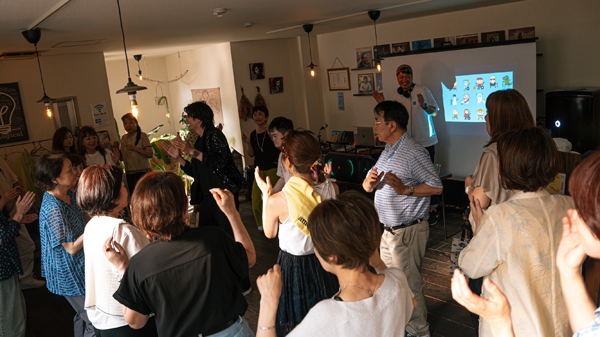New trends in elderly community communities Sayaka Sasaki (Representative of Haru Social Worker Office)


There are various forms of connections between people.
In Japan, there is a culture of cherishing and nurturing the ties that are born in the area where you live. A symbol of this is local community groups such as senior citizens’ clubs that are active in each area.
In Osaka, where I live, there have been senior citizens’ clubs in each area for a long time. However, their popularity is fading in modern times. The number of senior citizens’ club members nationwide was 8.87 million in 1998, but has decreased to 4.38 million in 2022. The reasons for this include changes in lifestyle and the impact of the COVID-19 pandemic, but above all, it is likely that the increase in the number of elderly people who find connecting with others troublesome is a major factor.
Even people who tend to avoid communicating with others like this, when you listen carefully, talk about their complicated feelings, such as “When I go to a local gathering, I find it difficult to get along with others. But if it weren’t for that, I would like to participate,” and “I don’t like it when only old people gather. I’m interested in events with young people.”
So, the “Senior Disco” was started.
The Senior Disco is a very simple event where strangers gather in one space and dance to old music. It started as a place for fleeting interaction to share the “fun of dancing together”.
Even if you remember the old days and think “I want to dance again,” it’s not hard to imagine that dancing alone is no fun. After all, it’s fun to dance with someone.
At the Senior Disco held the other day, 50 tickets were sold out in two days. When the Senior Disco started and the DJ started playing music, everyone naturally started swaying their bodies, laughing when shoulders bumped into each other, and applause broke out after each song.
At least there was a definite sense of unity. When it was over, everyone left in groups of three or five. This abrupt ending was refreshing, as it was for people who disliked humid communication.
In local communities, there is a tendency to value “continuous connections” and “face-to-face relationships.” This certainly provides emotional support for the elderly, but perhaps we should broaden our thinking and think about the nature of local communities a little more.
Senior discos are “ephemeral” and “highly anonymous”, valuing both one’s own individuality and the individuality of others, and such ways of connecting with new people match the needs of today’s elderly, so more and more are sure to want to participate.
A place free of ties to connect with someone for a moment. The number of elderly people seeking such places is likely to increase in the future.
※Translating Japanese articles into English with AI
